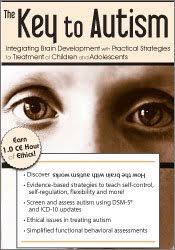Cara Marker Daily – The Key to Autism, Integrating Brain Development with Practical Strategies
$200 Original price was: $200.$75Current price is: $75.
Shopping Instructions:
- DISCOUNT 15% : SHOP15
- Product Delivery: Within 1 – 12 hours after purchase.
In this hands-on seminar you will discover what it is like to have a brain with autism. Once you experience the difference between a typical brain and brain with autism, you will be able to design more effective and successful interventions.
Cara Marker Daily – The Key to Autism, Integrating Brain Development with Practical Strategies
- Discover how the brain with autism works
- Evidence-based strategies to teach self-control, self-regulation, flexibility and more!
- Screen and assess autism using DSM-5® and ICD-10 updates
- Ethical issues in treating autism
- Simplified functional behavioral assessments
In this hands-on seminar you will discover what it is like to have a brain with autism. Once you experience the difference between a typical brain and brain with autism, you will be able to design more effective and successful interventions.
Join autism expert, Cara Daily, PhD, and learn how to integrate the latest research on brain development in your work with children with autism (0-19 years). You will walk away with up-to-date behavioral strategies to teach new skills, including:
- Social communication for identifying social rules
- Self-regulation for stress and anger management
- Self-help for hygiene, toileting, dressing, feeding
- Attention and motivation for staying on-task
- Maintaining and generalizing positive behaviors
Through dynamic discussion using dozens of case studies, video examples and experiential exercises and activities you will learn new strategies for treating autism, the ins and out of functional behavioral assessments and how to problem solve challenging behaviors, such as hitting, kicking, spitting, self-injurious behaviors, sexual behaviors and perseverating with this population.
- Screen and diagnose autism using DSM-5® and ICD-10 updates.
- Differentiate between abilities that are intact versus impaired in the brain with autism.
- Compare and evaluate empirically validated strategies for children with autism.
- Identify the best time to teach a new behavior.
- Determine the 2 major functions of a behavior using case examples.
- Employ evidence-based strategies to teach self-control, self-regulation and flexibility.
- Implement programs to assist in generalizing social skills.
- Analyze certain punishment techniques and the ethical dilemmas in using them.
Autism Spectrum Disorder (ASD)
- DSM-5® and ICD-10 updates
- Comorbid disorders
- Latest research in brain development
- Intact versus impaired abilities
- Information processing
Screening and Assessment Tools
- General developmental screeners
- Specific autism screeners
- Sample assessment measures
Early Intervention and Evidence-based Therapies: Video Examples
- Applied behavioral analysis
- Developmental therapies
- Educational interventions
- Psychopharmacology
Behavioral Techniques
- Teach social communication, self-help skills and on-task behaviors
- Decrease spitting, hitting, kicking and other inappropriate behaviors
- Increase attention and motivation
- Simplified functional behavioral assessments
Would you like to receive Cara Marker Daily – The Key to Autism, Integrating Brain Development with Practical Strategies ?
Social-Communication Strategies
- Visual systems to improve communication
- Programs to assist in generalizing social skills
- Use of videos to model and role play
- Concrete methods to teach social rules
- Techniques to help individuals with ASD identity social errors
Environmental Strategies
- Schedules, time-lines, web diagramming and other organizational systems
- Reinforcement menus that set the child up for success
- Tips to structure your room for optimal learning
Self-Regulation Strategies
- Tools to help the individual with ASD recognize emotions
- Handouts to teach the individual flexibility
- Relaxation techniques for stress and anger management
Ethical Challenges in Autism
- Welfare of the individual
- Informed consent
- Least restrictive
- Use of restraints
- Time-out versus seclusion
- Alternatives to punishment
Related products
HEALTH & MEDICAL
HEALTH & MEDICAL
HEALTH & MEDICAL
HEALTH & MEDICAL
Dr. J.E. Williams & Kevin Gianni – How to Read Your Blood Tests
HEALTH & MEDICAL
HEALTH & MEDICAL
Dr Heidi M Crocker – Yoga Alignment | Speaker: Heidi Crocker EdD, DC












